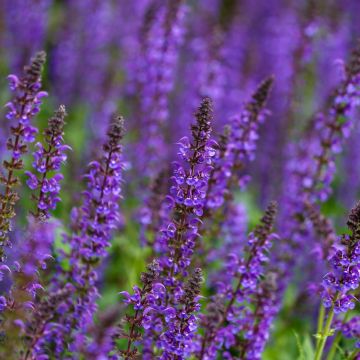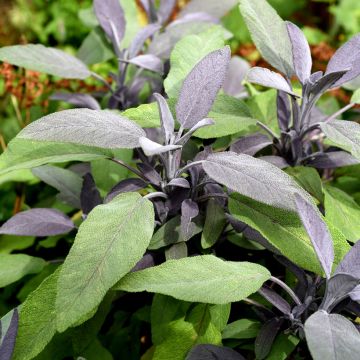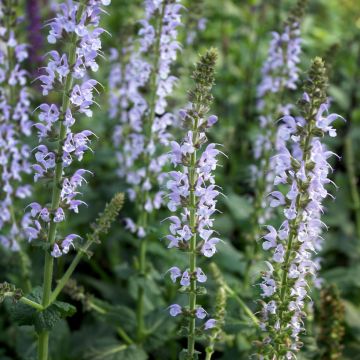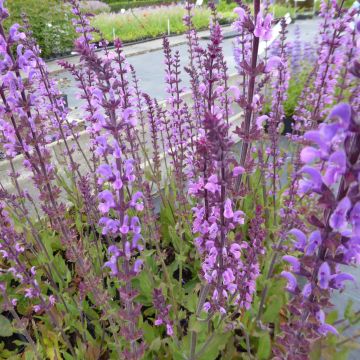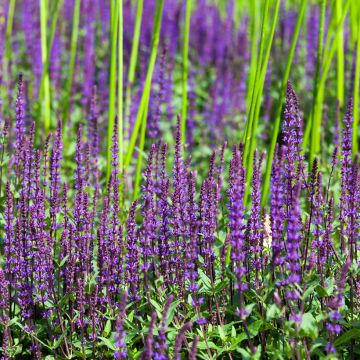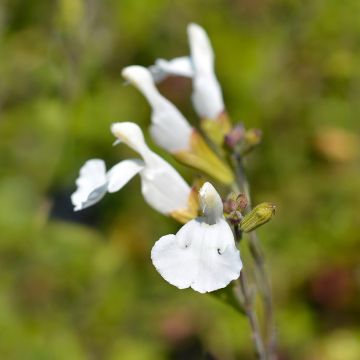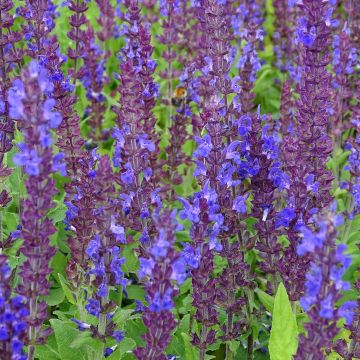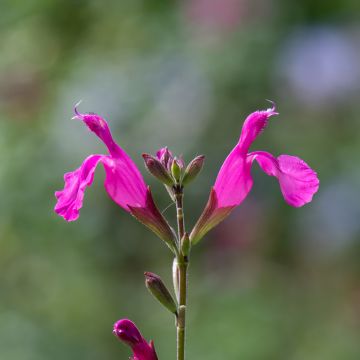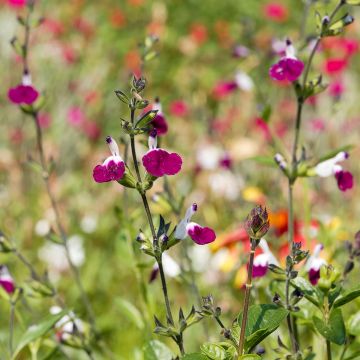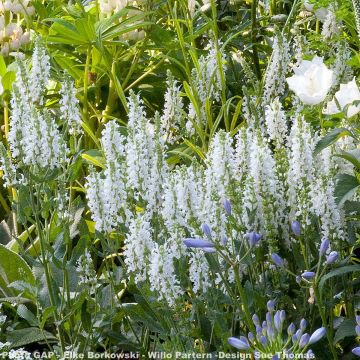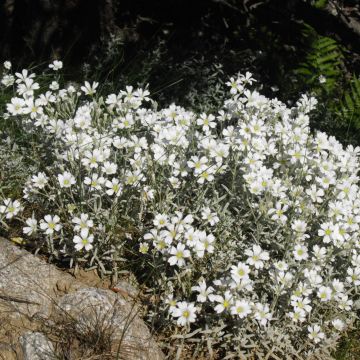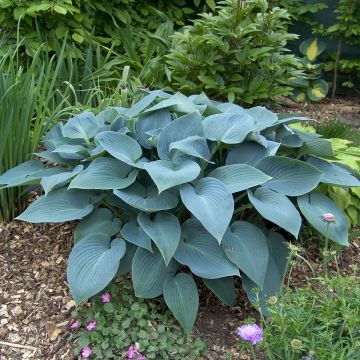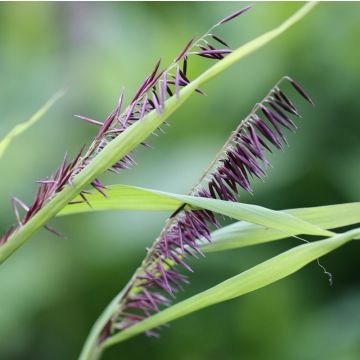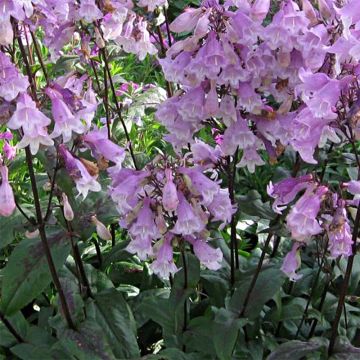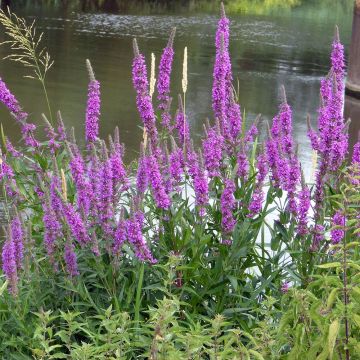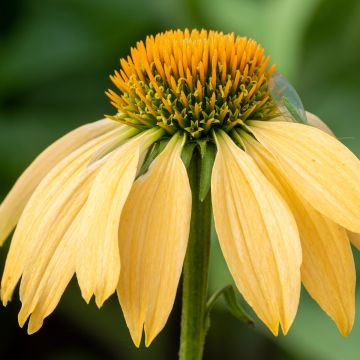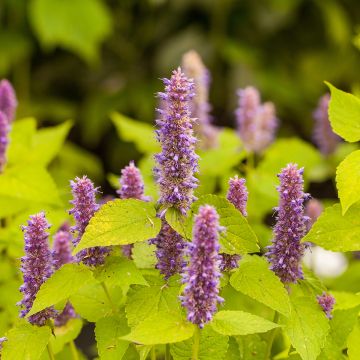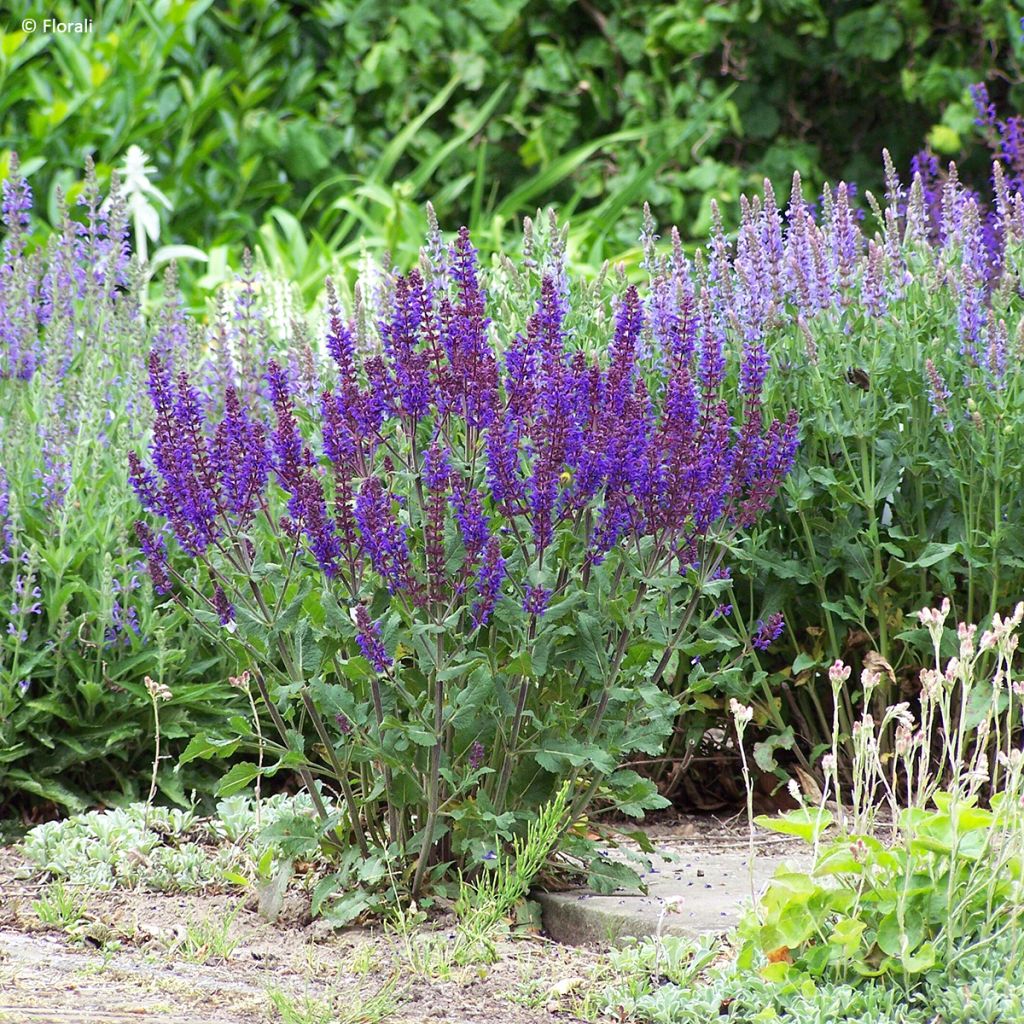

Salvia x sylvestris Bazuin Dark Night 'Sabadate' - Clary sage
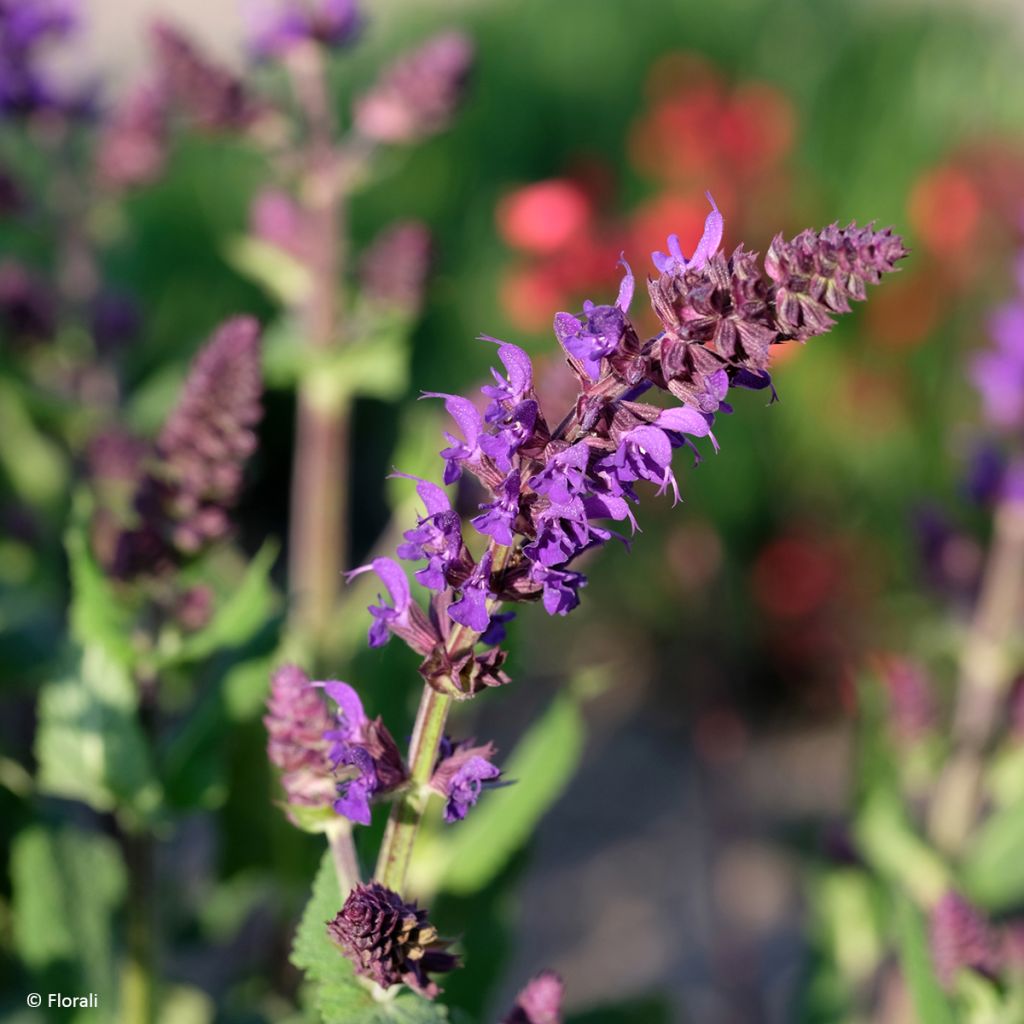

Salvia x sylvestris Bazuin Dark Night 'Sabadate' - Clary sage
Salvia x sylvestris Bazuin Dark Night 'Sabadate' - Clary sage
Salvia x sylvestris 'Sabadate' Bazuin® Dark Night
Sauge des bois Bazuin Dark Night
Special offer!
Receive a €20 voucher for any order over €90 (excluding delivery costs, credit notes, and plastic-free options)!
1- Add your favorite plants to your cart.
2- Once you have reached €90, confirm your order (you can even choose the delivery date!).
3- As soon as your order is shipped, you will receive an email containing your voucher code, valid for 3 months (90 days).
Your voucher is unique and can only be used once, for any order with a minimum value of €20, excluding delivery costs.
Can be combined with other current offers, non-divisible and non-refundable.
Why not try an alternative variety in stock?
View all →This plant carries a 12 months recovery warranty
More information
We guarantee the quality of our plants for a full growing cycle, and will replace at our expense any plant that fails to recover under normal climatic and planting conditions.
Would this plant suit my garden?
Set up your Plantfit profile →
Description
Salvia x sylvestris Bazuin® Dark Night 'Sabadate' is a perennial sage perfect for bringing rhythm and colour to the garden throughout summer. Compact, floriferous and easy-going, it produces deep violet-blue spikes in waves from spring to autumn. Its aromatic, blue-green foliage forms a dense, well-branched clump that maintains a neat appearance both in borders and containers. It is a very hardy, drought-tolerant and nectar-rich, generous, trouble-free and unpretentious plant.
Salvia x sylvestris Bazuin® Dark Night is a recent variety of wood sage, resulting from horticultural cross-breeding between European and Asian forms of Salvia. Selected in 2020 by Bazuin Nursery in the Netherlands, it stands out for its dark violet-blue flower spikes borne on purple-tinted stems, and its aromatic, finely textured blue-green foliage. Its compact and bushy habit forms a dense, regular clump approximately 50 cm tall (in flower) and 30-40 cm wide. Flowering begins in May-June and continues in successive waves until autumn, especially if care is taken to deadhead spent spikes during the season. The tubular flowers are grouped in short, dense spikes, highly attractive to bees, butterflies and other pollinating insects. The foliage is semi-evergreen in winter, persisting as a basal rosette until the following spring. The lanceolate, dentate and slightly rough leaves release a pleasant fragrance when crushed. With good disease resistance, this perennial is hardy down to –20 °C.
The Bazuin® Dark Night sage is an excellent perennial for border edges and flowering containers. It withstands wind, frost, heat and adapts to poor soils. Its dark violet-blue flowering boasts a rich density of colour, particularly effective for highlighting lighter blooms, such as those of white gaura, anthemis or scabious. In a naturalistic-style garden, it pairs well with soft grasses like Pennisetum ‘Hameln’. It also works wonderfully in English-style mixed borders, alongside landscape roses and nepeta. It is a resilient, elegant and easy perennial of character that fits into many garden styles.
With over 900 species of annuals, perennials and soft-wooded bushes, found across the globe except in very cold regions and the tropical forest, the Salvia genus is the largest in the Lamiaceae family. The name Salvia, dating back to Roman times, derives from the Latin salvus meaning "healthy", alluding to the medicinal virtues of common sage.
Report an error about the product description
Salvia x sylvestris Bazuin Dark Night 'Sabadate' - Clary sage in pictures


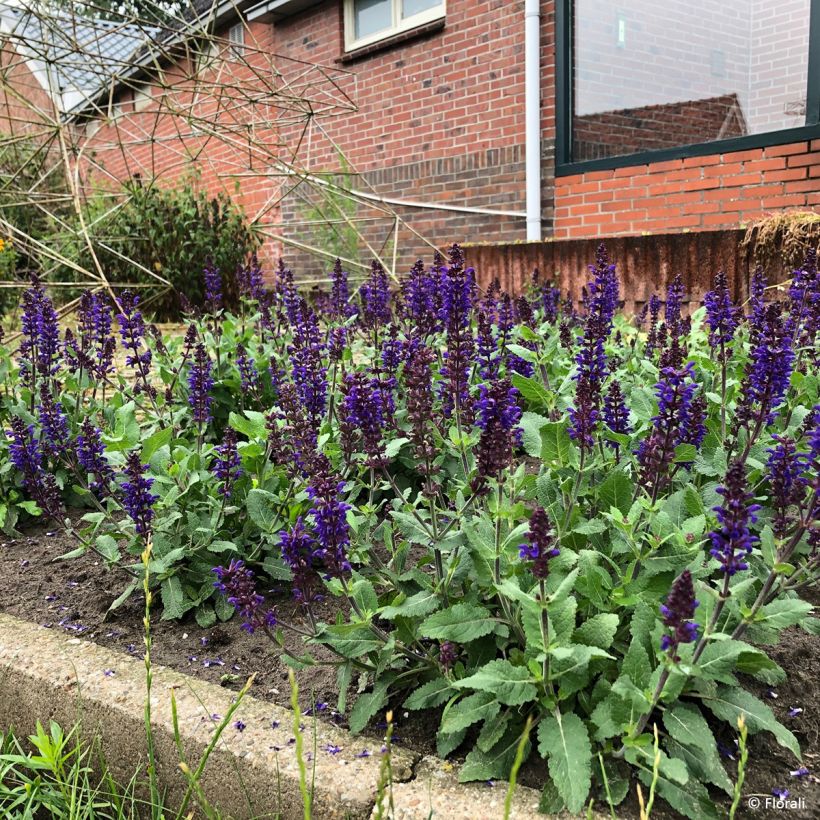

Flowering
Foliage
Plant habit
Botanical data
Salvia
x sylvestris
'Sabadate' Bazuin® Dark Night
Lamiaceae
Sauge des bois Bazuin Dark Night
Salvia x nemorosa 'Sabadate', Salvia x nemorosa Bazuin® Dark Night
Cultivar or hybrid
Planting and care
Plant Salvia nemorosa 'Bazuin Dark Night' from October to March, avoiding frost periods, with 40 cm spacing in well-drained soil, even stony ground, in full sun or partial shade. This plant tolerates and even likes limestone and withstands some drought. It does not like heavy, waterlogged soils in winter, which can affect its hardiness. In winter, add some compost or other organic matter. Cut it back to 20 cm at the end of winter before new growth begins. In northern or humid regions, use a mineral "mulch" (gravel, pumice, pebbles...) 4 to 6 cm thick to help drain the plant's collar. Under these conditions, it can withstand temperatures down to -30°C.
To preserve the sage's vitality, it is advisable to divide the plant after 3-4 years. Plant the new young plants in well-worked soil: to improve soil that is a bit too poor, mix in some horticultural compost.
Planting period
Intended location
Care
This item has not been reviewed yet - be the first to leave a review about it.
Similar products
Haven't found what you were looking for?
Hardiness is the lowest winter temperature a plant can endure without suffering serious damage or even dying. However, hardiness is affected by location (a sheltered area, such as a patio), protection (winter cover) and soil type (hardiness is improved by well-drained soil).

Photo Sharing Terms & Conditions
In order to encourage gardeners to interact and share their experiences, Promesse de fleurs offers various media enabling content to be uploaded onto its Site - in particular via the ‘Photo sharing’ module.
The User agrees to refrain from:
- Posting any content that is illegal, prejudicial, insulting, racist, inciteful to hatred, revisionist, contrary to public decency, that infringes on privacy or on the privacy rights of third parties, in particular the publicity rights of persons and goods, intellectual property rights, or the right to privacy.
- Submitting content on behalf of a third party;
- Impersonate the identity of a third party and/or publish any personal information about a third party;
In general, the User undertakes to refrain from any unethical behaviour.
All Content (in particular text, comments, files, images, photos, videos, creative works, etc.), which may be subject to property or intellectual property rights, image or other private rights, shall remain the property of the User, subject to the limited rights granted by the terms of the licence granted by Promesse de fleurs as stated below. Users are at liberty to publish or not to publish such Content on the Site, notably via the ‘Photo Sharing’ facility, and accept that this Content shall be made public and freely accessible, notably on the Internet.
Users further acknowledge, undertake to have ,and guarantee that they hold all necessary rights and permissions to publish such material on the Site, in particular with regard to the legislation in force pertaining to any privacy, property, intellectual property, image, or contractual rights, or rights of any other nature. By publishing such Content on the Site, Users acknowledge accepting full liability as publishers of the Content within the meaning of the law, and grant Promesse de fleurs, free of charge, an inclusive, worldwide licence for the said Content for the entire duration of its publication, including all reproduction, representation, up/downloading, displaying, performing, transmission, and storage rights.
Users also grant permission for their name to be linked to the Content and accept that this link may not always be made available.
By engaging in posting material, Users consent to their Content becoming automatically accessible on the Internet, in particular on other sites and/or blogs and/or web pages of the Promesse de fleurs site, including in particular social pages and the Promesse de fleurs catalogue.
Users may secure the removal of entrusted content free of charge by issuing a simple request via our contact form.
The flowering period indicated on our website applies to countries and regions located in USDA zone 8 (France, the United Kingdom, Ireland, the Netherlands, etc.)
It will vary according to where you live:
- In zones 9 to 10 (Italy, Spain, Greece, etc.), flowering will occur about 2 to 4 weeks earlier.
- In zones 6 to 7 (Germany, Poland, Slovenia, and lower mountainous regions), flowering will be delayed by 2 to 3 weeks.
- In zone 5 (Central Europe, Scandinavia), blooming will be delayed by 3 to 5 weeks.
In temperate climates, pruning of spring-flowering shrubs (forsythia, spireas, etc.) should be done just after flowering.
Pruning of summer-flowering shrubs (Indian Lilac, Perovskia, etc.) can be done in winter or spring.
In cold regions as well as with frost-sensitive plants, avoid pruning too early when severe frosts may still occur.
The planting period indicated on our website applies to countries and regions located in USDA zone 8 (France, United Kingdom, Ireland, Netherlands).
It will vary according to where you live:
- In Mediterranean zones (Marseille, Madrid, Milan, etc.), autumn and winter are the best planting periods.
- In continental zones (Strasbourg, Munich, Vienna, etc.), delay planting by 2 to 3 weeks in spring and bring it forward by 2 to 4 weeks in autumn.
- In mountainous regions (the Alps, Pyrenees, Carpathians, etc.), it is best to plant in late spring (May-June) or late summer (August-September).
The harvesting period indicated on our website applies to countries and regions in USDA zone 8 (France, England, Ireland, the Netherlands).
In colder areas (Scandinavia, Poland, Austria...) fruit and vegetable harvests are likely to be delayed by 3-4 weeks.
In warmer areas (Italy, Spain, Greece, etc.), harvesting will probably take place earlier, depending on weather conditions.
The sowing periods indicated on our website apply to countries and regions within USDA Zone 8 (France, UK, Ireland, Netherlands).
In colder areas (Scandinavia, Poland, Austria...), delay any outdoor sowing by 3-4 weeks, or sow under glass.
In warmer climes (Italy, Spain, Greece, etc.), bring outdoor sowing forward by a few weeks.






























